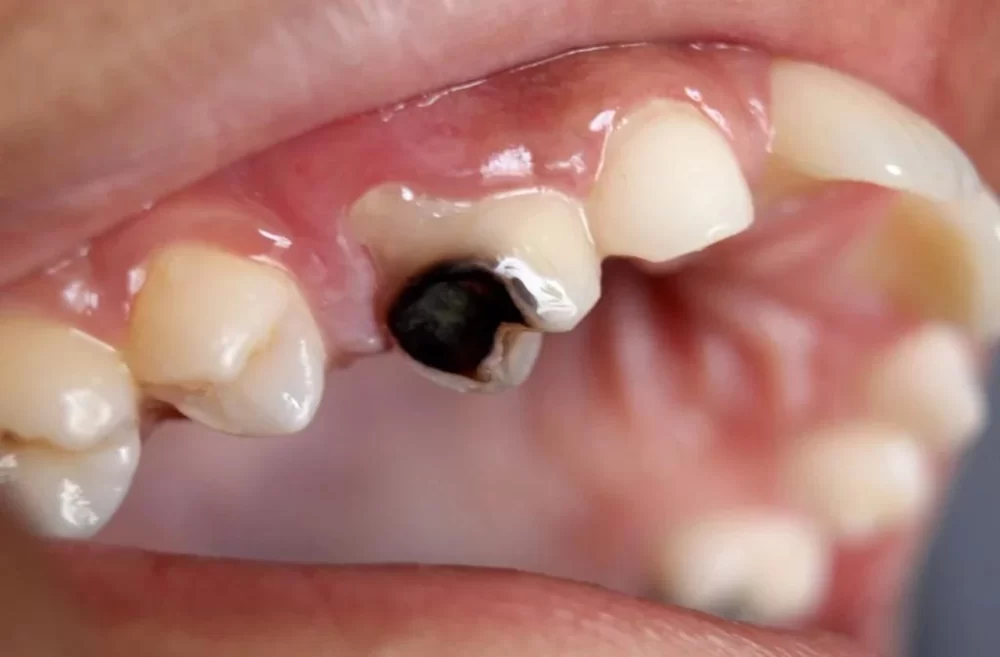
Understanding Cavities in Teenagers
Teenagers are particularly vulnerable to cavities due to a combination of factors such as diet, lifestyle habits, and changes in their growing bodies. Cavities, also known as dental caries, occur when the bacteria in your mouth break down food particles, releasing acids that attack the enamel of your teeth. This leads to decay, which, if left untreated, can result in painful cavities and even tooth loss. In this article, we will discuss the causes of cavities in teenagers, how to prevent them, and effective treatment options if they do occur.
1. Why Teenagers Are More Prone to Cavities
There are several reasons why teenagers are more likely to develop cavities compared to other age groups. First, the teenage diet often includes sugary snacks, sodas, and fast foods, all of which contribute to the development of plaque and cavities. Teens may also neglect regular brushing and flossing due to busy schedules or lack of motivation, leading to plaque buildup and tooth decay. Additionally, the hormonal changes that occur during adolescence can affect the composition of saliva, making it less effective in neutralizing acids and protecting against cavities.
Consider the case of Jason, a 15-year-old high school student who frequently ate sugary snacks and often forgot to brush his teeth before bed. Over time, he developed multiple cavities, which led to tooth pain and discomfort. Jason's experience is a reminder that poor eating habits and inconsistent oral hygiene can quickly lead to dental problems during the teenage years.
2. Tips for Preventing Cavities in Teenagers
Preventing cavities in teenagers requires a combination of good oral hygiene practices, healthy eating habits, and regular dental checkups. Below are some practical tips to help teens avoid tooth decay:
- Brush teeth regularly: Encourage teens to brush their teeth at least twice a day with fluoride toothpaste. This helps remove plaque and prevent the buildup of harmful bacteria. Brushing before bed is especially important, as it removes food particles and bacteria accumulated throughout the day.
- Floss daily: Flossing removes food particles and plaque from between teeth, areas that toothbrushes can't reach. Teenagers should make flossing a daily habit to keep their gums and teeth healthy.
- Limit sugary foods and drinks: Sugary snacks, sodas, and energy drinks are major contributors to tooth decay. Reducing the intake of sugary foods and beverages will help minimize the risk of cavities. Instead, encourage teens to eat more whole foods, such as fruits, vegetables, and dairy products, which are beneficial for oral health.
- Visit the dentist regularly: Regular dental checkups are essential for detecting early signs of cavities and other dental issues. Teenagers should see their dentist at least once every six months for a thorough examination and cleaning.
- Use fluoride treatments: Fluoride strengthens tooth enamel and helps prevent cavities. Many dentists recommend fluoride treatments or fluoride-rich mouthwashes for teenagers to provide extra protection against tooth decay.
3. The Role of Sealants in Preventing Cavities
Dental sealants are a preventive measure that can be highly effective in protecting the teeth from cavities. These thin coatings are applied to the chewing surfaces of the back teeth, where cavities are most likely to develop. Sealants act as a barrier, preventing food particles and bacteria from settling into the grooves of the teeth.
Teenagers, especially those with deep grooves in their molars, can greatly benefit from sealants. For example, Sarah, a 16-year-old high school athlete, had her molars sealed after her dentist noticed that her teeth had deep grooves prone to trapping food. Since then, Sarah has been cavity-free, and her dentist believes that the sealants played a significant role in protecting her teeth. Sealants are a quick and easy procedure that can provide long-term protection against cavities.
4. What to Do If a Teenager Gets a Cavity
Even with the best preventive measures, cavities can still occur. If a teenager develops a cavity, it is important to seek prompt dental treatment to prevent further decay and pain. The most common treatment for cavities is a filling, where the decayed portion of the tooth is removed, and the area is filled with a durable material such as composite resin, amalgam, or porcelain.
For example, Tom, a 14-year-old from Boston, started experiencing tooth sensitivity and pain while eating cold foods. After visiting his dentist, he was diagnosed with a cavity in one of his molars. Tom’s dentist cleaned out the decayed area and placed a filling to restore the tooth. Thanks to timely treatment, Tom’s cavity was fixed, and he was able to continue enjoying his favorite foods without discomfort.
5. The Importance of Avoiding DIY Treatments for Cavities
In the age of the internet, many teenagers may be tempted to try DIY treatments for cavities, such as using home remedies or over-the-counter products. However, it is essential to understand that these methods are not a substitute for professional dental care. Attempting to treat a cavity on your own can lead to further damage and complications.
Take Emily, a 17-year-old who tried using baking soda and vinegar to treat a cavity she thought was developing. Unfortunately, the acidic nature of the vinegar caused more harm than good, and her tooth became more sensitive and painful. Emily’s story highlights the importance of seeking professional dental care when dealing with cavities to avoid worsening the problem.
6. The Role of Regular Dental Checkups in Cavity Prevention
Regular dental checkups are crucial for preventing and treating cavities in teenagers. Dentists can spot early signs of decay before it becomes a serious issue, and they can provide advice on improving oral hygiene practices. During a dental visit, the dentist will also clean the teeth to remove plaque and tartar that cannot be removed with regular brushing alone.
In the case of Jake, a 13-year-old from Dallas, regular dental visits helped detect small cavities that were starting to form. His dentist was able to treat the cavities early, preventing further damage and saving Jake from more invasive procedures. Regular checkups are an essential part of maintaining good oral health and preventing cavities from becoming a larger issue.
7. Encouraging Good Habits in Teenagers
Getting teenagers to embrace good dental habits can be challenging, especially with their busy schedules and social pressures. However, it is important for parents and guardians to emphasize the long-term benefits of good dental hygiene. Setting a good example, providing encouragement, and educating teens about the importance of oral health can help them develop habits that will protect their teeth for years to come.
For instance, when Lisa, a mother of two teenagers, started modeling good dental habits at home by brushing and flossing together as a family, her kids were more motivated to follow suit. By creating a routine and making it a fun, shared activity, Lisa helped her children prioritize their oral health.







 Kid's Dental4.0 (280 review)
Kid's Dental4.0 (280 review) North Scottsdale Dental4.0 (211 review)
North Scottsdale Dental4.0 (211 review) Tend East Nashville4.0 (319 review)
Tend East Nashville4.0 (319 review) Lake Forest Dental Associates4.0 (230 review)
Lake Forest Dental Associates4.0 (230 review) Picture Perfect Smile5.0 (418 review)
Picture Perfect Smile5.0 (418 review) Great Day Dental East4.0 (221 review)
Great Day Dental East4.0 (221 review) The Importance of Oral Health Education During Pregnancy for a Healthy Pregnancy
The Importance of Oral Health Education During Pregnancy for a Healthy Pregnancy Best Tips for Brushing Your Teeth Properly for Healthy Gums: Essential Techniques for Oral Health
Best Tips for Brushing Your Teeth Properly for Healthy Gums: Essential Techniques for Oral Health Why Skipping Dental Checkups Can Lead to Bigger Oral Health Problems
Why Skipping Dental Checkups Can Lead to Bigger Oral Health Problems Advantages of Porcelain Dental Restorations
Advantages of Porcelain Dental Restorations How Can Diabetes Cause Tooth and Gum Problems? Preventing and Managing Oral Health Issues
How Can Diabetes Cause Tooth and Gum Problems? Preventing and Managing Oral Health Issues Healthy Habits for Promoting Good Oral Health and Hygiene: Tips for a Healthy Smile
Healthy Habits for Promoting Good Oral Health and Hygiene: Tips for a Healthy Smile